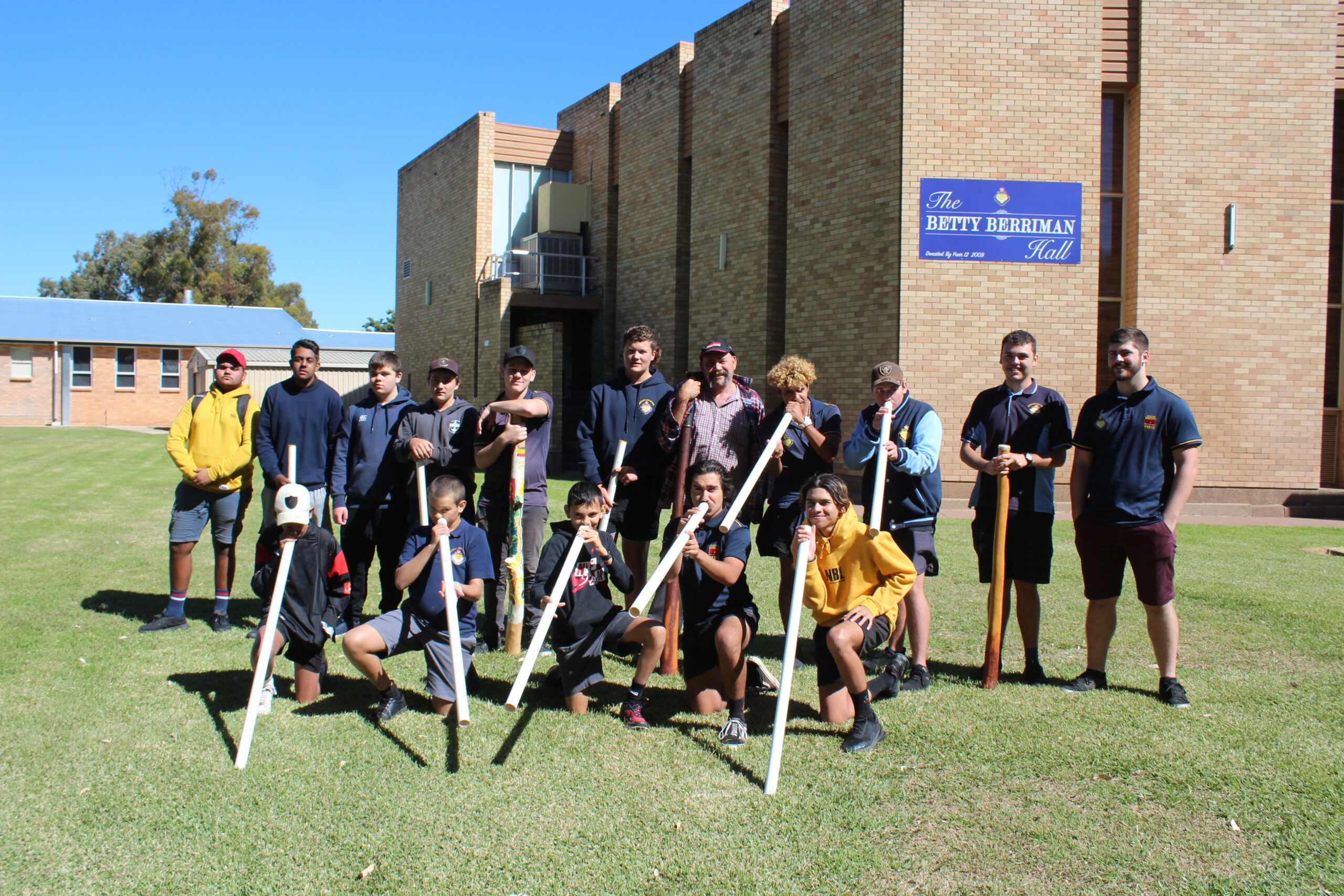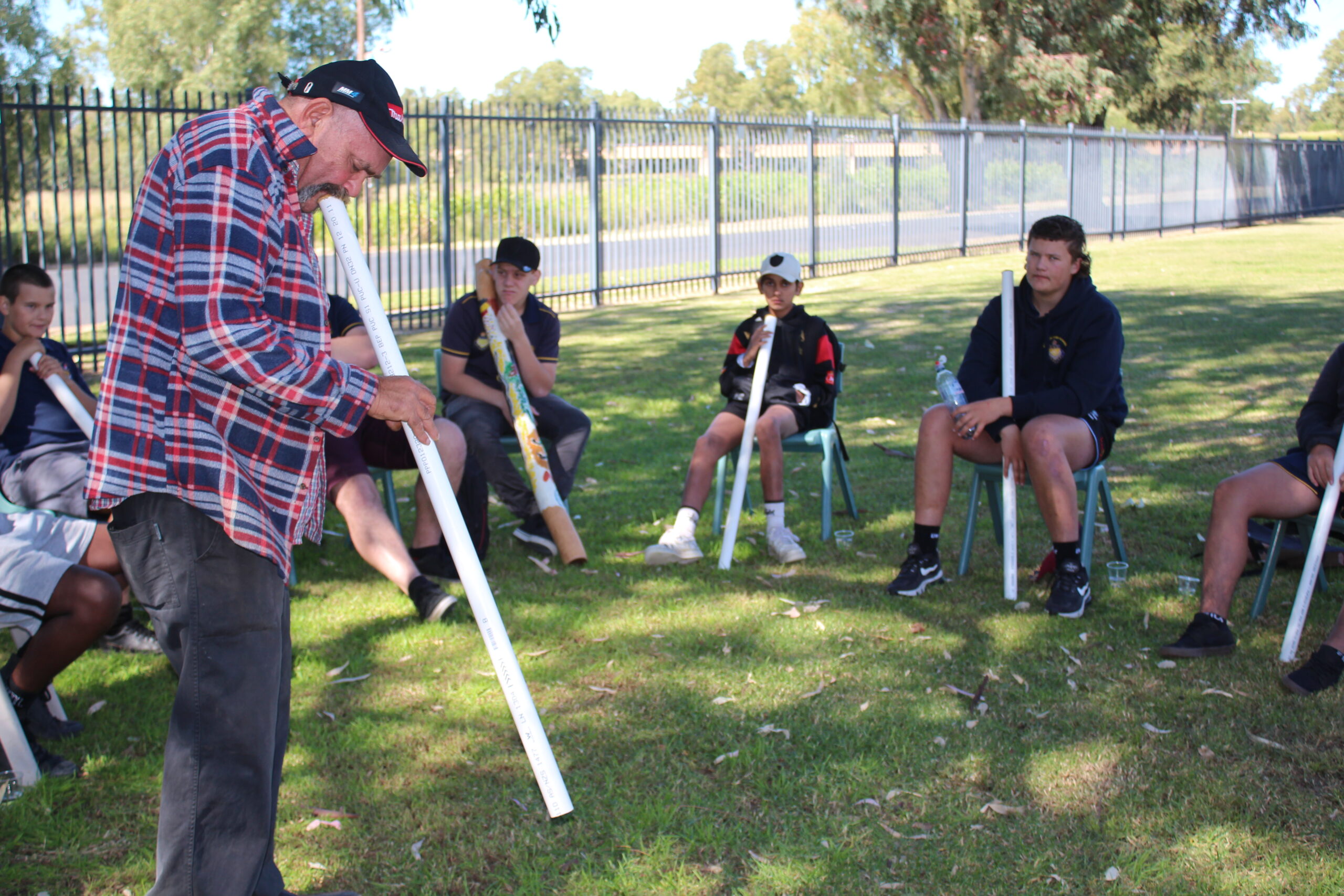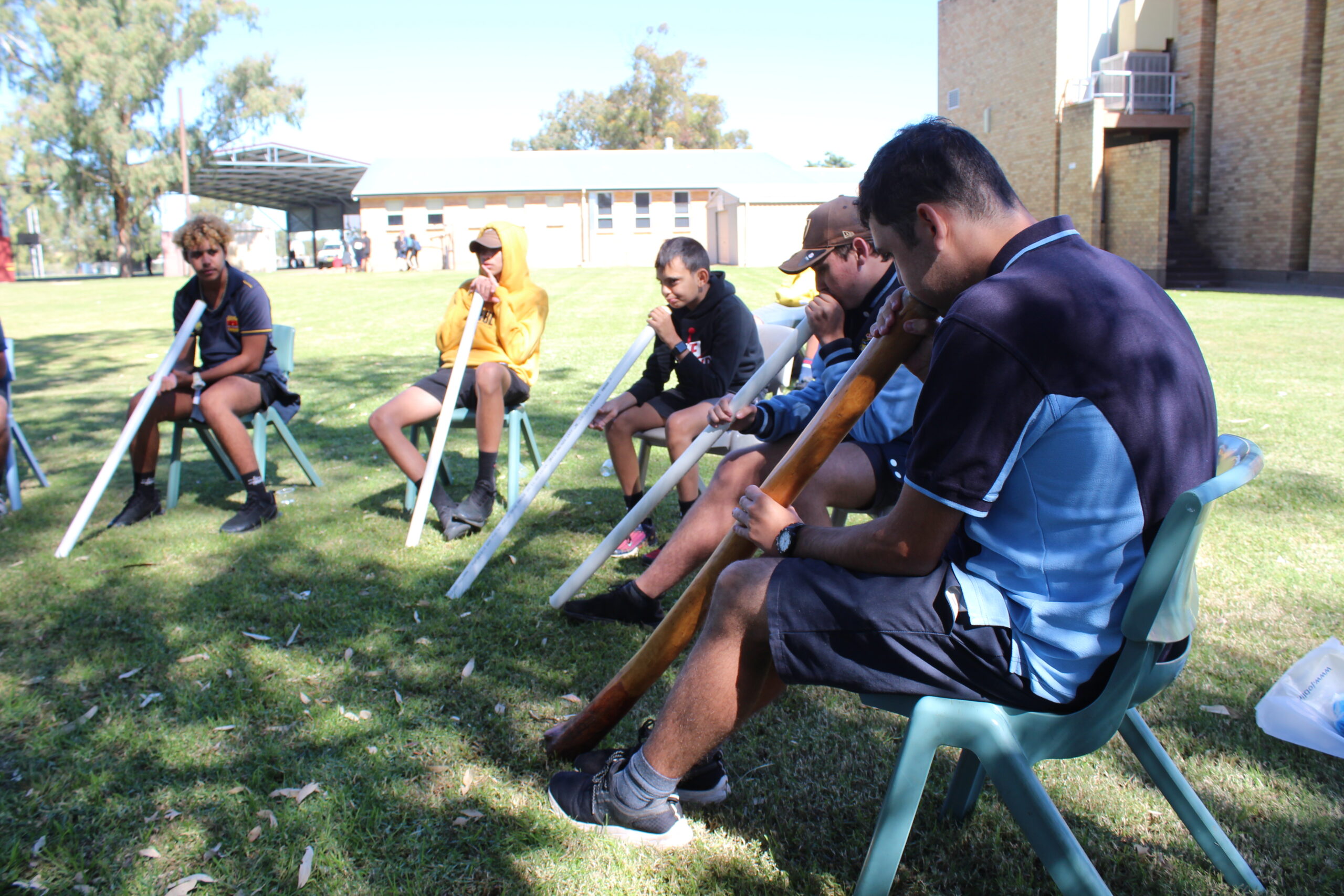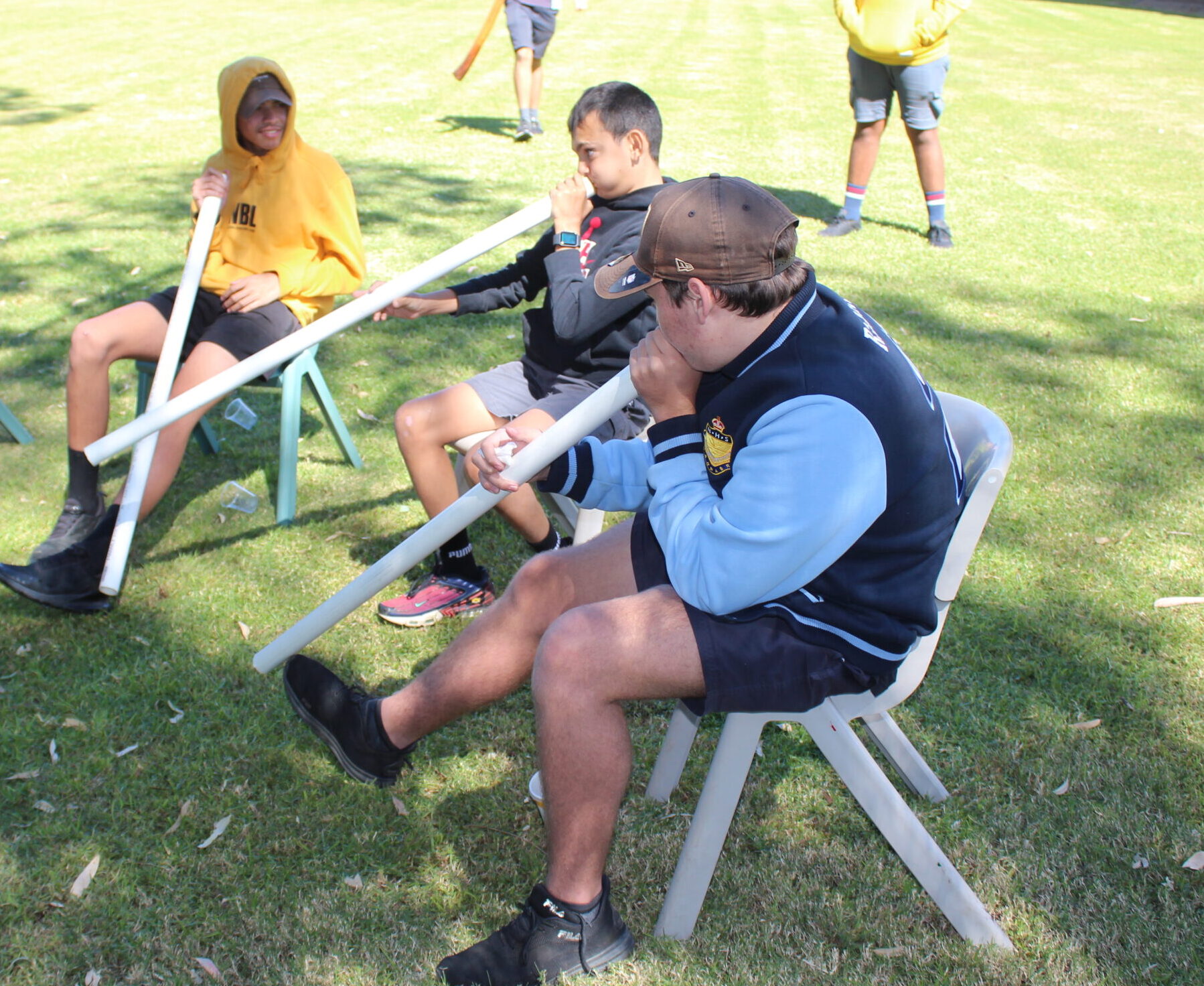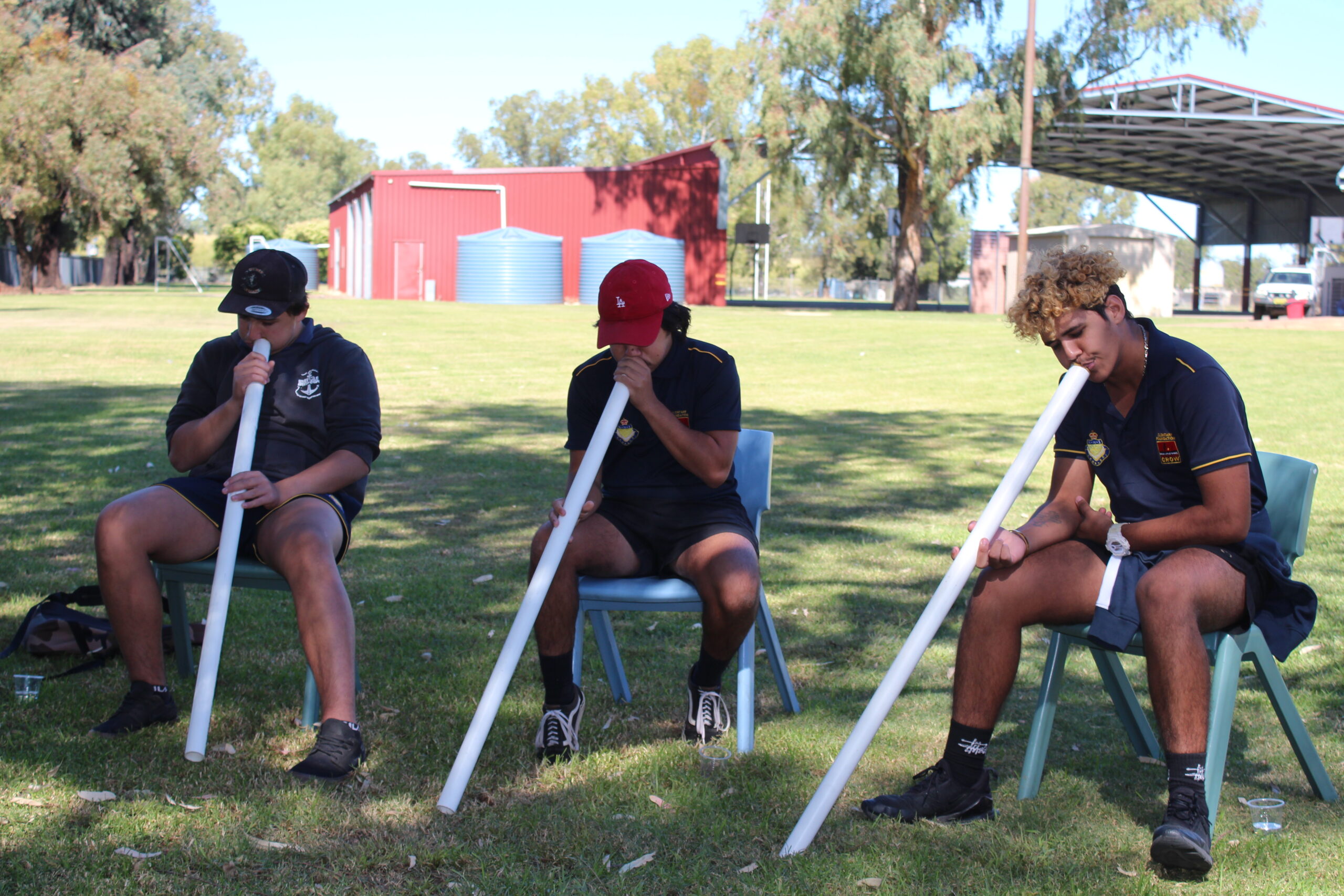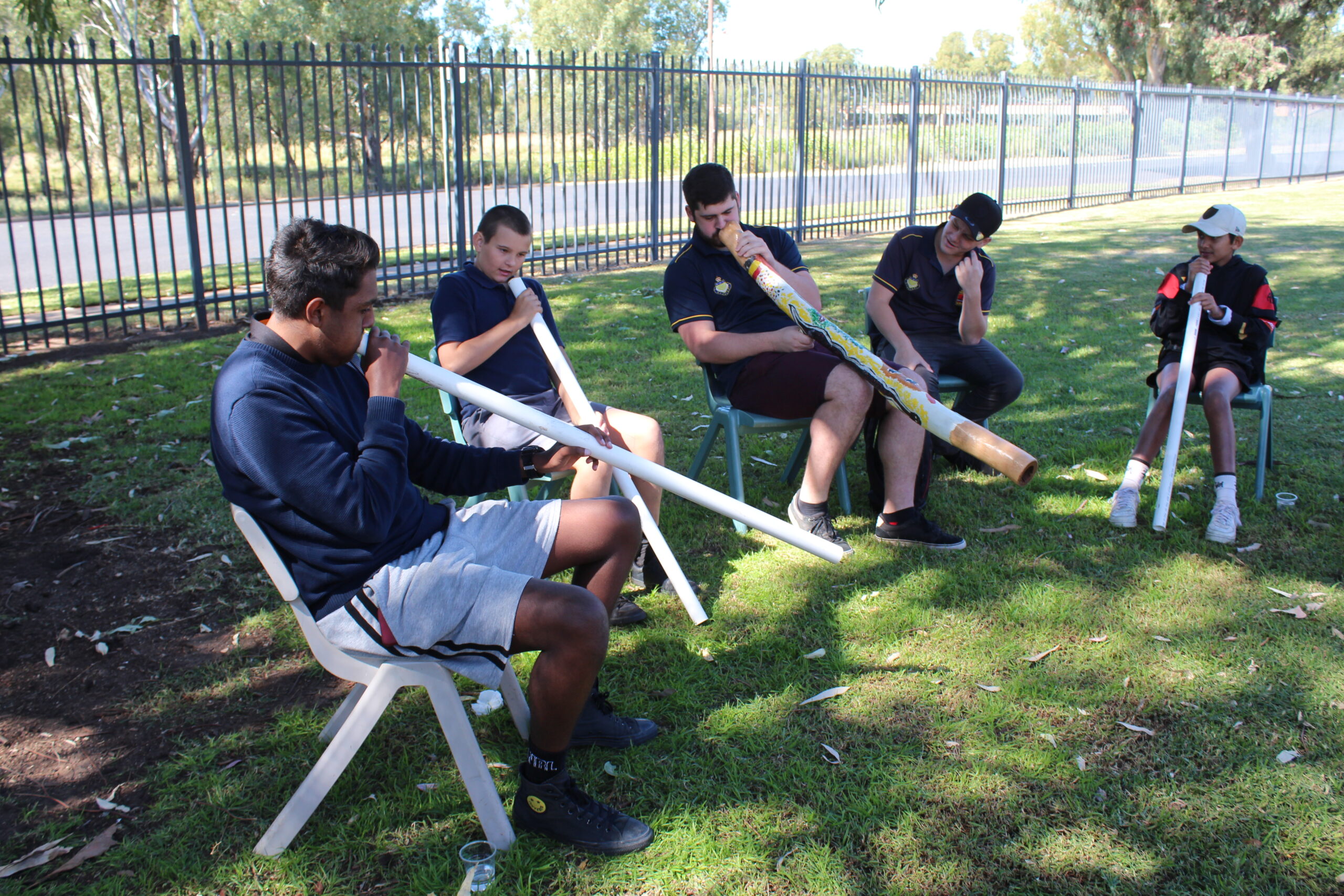Mark Atkins, an indigenous Yamatji man, has played didgeridoo around the world.
He’s performed alongside talents like Led Zeppelin and Prince, as well as homegrown stars like Paul Kelly, Jimmy Barnes and John Butler Trio, and his music can be found in film blockbusters like Australia and Kangaroo Jack.
As part of the 2021 NSW Youth Week celebrations, Joblink Plus invited Mr Atkins to visit Narrabri High School.
He performed during the students’ lunch break on Thursday, April 22, before teaching a workshop for a small group.
The young Aboriginal and Torres Strait Islander male students sponsored through the Clontarf Foundation experienced first-hand didgeridoo lessons from the pro, and developed their musical skills.
These workshop classes are nothing new for Mr Atkins, but they are a special treat for small regional towns like Narrabri.
“Most of the students I teach don’t have much experience with a traditional instrument like the didgeridoo, especially out in rural areas,” he said.
But for Mr Atkins, these classes are about so much more than the techniques needed to play the instrument.
“In these tight-knit groups, the boys learn social skills too,” he said.
“The hands-on approach brings them together and gets them talking to each other, communicating and helping one another.”
Mr Atkins explained that, after getting into the dangerous rock ‘n’ roll scene in the ‘70s, reconnecting with his culture got him back on track.
“My uncle took me away from drumming and back home, then taught me how to play didgeridoo,” he said.
“What started as fun around the campfire ended up saving my life and taking me all around the world.”
Mr Atkins hopes his teachings have the same positive impact on today’s youth.
“That’s why I like visiting these towns and passing on my skills to the next generation,” he said.
“I’m not getting any younger, so I think it’s important to teach the things I’ve learnt to the young ones and help them understand the significance of their culture.”
In the workshop, the students each used a piece of PVC pipe as a makeshift didgeridoo.
The ends were sanitised and sanded, before they moulded beeswax around the top of the cylinder, to avoid the pipe injuring the students’ faces.
After trying their hand at the basic sound of the didgeridoo, called a “drone”, Mr Atkins taught a cycle breathing technique.
Using cups of water, he showed the students the movement their mouths and cheeks should make when playing.
“You should be able to spray the water out of your mouth while breathing in through your nose,” he said.
“But if you breathe in through your mouth while trying to spit out the water, it won’t work – it’s the same for when you’re playing didgeridoo.”
“They used to use this same exercise when teaching glass blowers to cycle breathe.”
Between mastering the drone and cycle breathing techniques, Mr Atkins assured the students that it takes practice.
“It can be frustrating to try and learn, but there’s no such thing as ‘can’t’,” he said.
Mr Atkins compared the skill to playing a sport, reminding the boys that they probably couldn’t throw or kick a ball like a professional on their first try.
“Some people play with their mouth fully inside the didgeridoo, others play facing off to the side so only half their mouth is on it,” he said.
“There’s no right or wrong way – whatever you feel confident doing, is best.”
